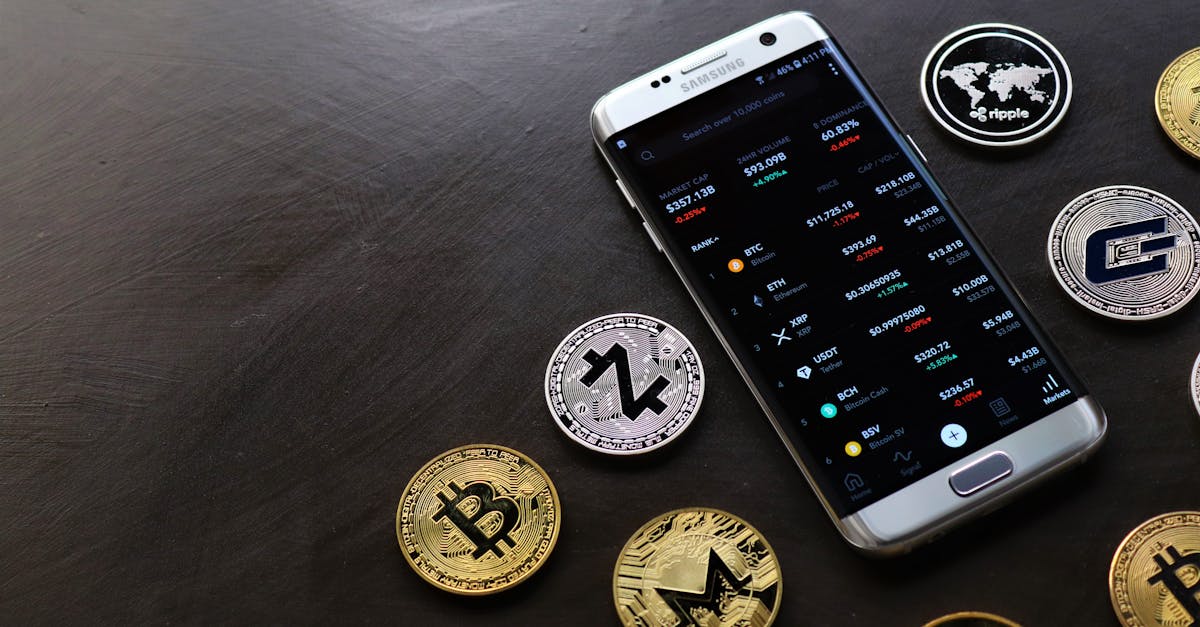Digital Wallet Diaries Unlocking the Future of Finance
Introduction
As the world embraces technological advancements, the way we manage money has drastically evolved. Digital wallets, a revolutionary alternative to traditional payment methods, are at the forefront of this transformation. Simplifying transactions, enhancing security, and offering unparalleled convenience, digital wallets are becoming indispensable in our daily lives. From bustling urban centers to quiet suburban neighborhoods, this technology is forging a cashless future. But how exactly do digital wallets work, and what implications do they carry for society? Join us as we explore the ins and outs of digital wallets—the vanguards of modern finance.
Advertisement
What Are Digital Wallets?
A digital wallet, also known as an e-wallet, is an electronic device that allows individuals to make electronic transactions. It securely stores users' payment information, such as credit card numbers and bank account details, and is designed to simplify and speed up the purchasing process. Available as apps on smartphones, digital wallets like Apple Pay, Google Wallet, and Samsung Pay are increasingly used globally. They allow for both in-person contactless payments and online purchases, giving consumers flexibility and ease. Whether you're buying a coffee or ordering clothes online, digital wallets streamline the payment process in a seamless manner.
Advertisement
The Evolution of Digital Wallets
Although it might seem like a modern innovation, the concept of digital wallets has been around for decades. Its roots can be traced back to the 1990s when the internet was in its nascent stage. With the advent of e-commerce, there was a pressing need for secure and convenient online payment methods. Fast forward to today, digital wallets have become more than just a tool for online transactions. Thanks to advancements in mobile technology, they now offer features like loyalty programs, bill payments, and, in some cases, cryptocurrency transactions. This evolution marks a significant shift in how we perceive and engage with money.
Advertisement
Security Benefits of Digital Wallets
Security has always been a primary concern for digital payments, and e-wallets are designed to address these fears. Transactions made using digital wallets typically involve tokenization—a process that replaces sensitive card details with unique tokens. This means that actual account numbers are not stored on merchants’ systems, reducing the risk of data breaches. Moreover, biometric authentications, such as fingerprint or facial recognition, add an extra layer of security. For many users, these robust security measures provide the assurance needed to transition to a cashless lifestyle, knowing their financial information is well-protected.
Advertisement
Convenience and Accessibility
Digital wallets simplify financial management and remove the friction from day-to-day transactions. They allow users to make quick payments without fumbling for cash or cards. Simply tapping a smartphone on a terminal or swiping through an online checkout process can complete a transaction in seconds. Furthermore, with the global rise of smartphones, digital wallets are accessible to a large population, making them a crucial tool for financial inclusion. Whether you're tech-savvy or not, the user-friendly design of most wallets ensures ease of use for people from all walks of life, encouraging widespread adoption.
Advertisement
The Role in Financial Inclusion
Digital wallets play a significant role in enhancing financial inclusion by bringing banking and transactional services to underserved communities. In regions where traditional banking infrastructures struggle due to high costs or geographical constraints, e-wallets provide a viable alternative. Moreover, as they usually require less documentation compared to traditional bank accounts, individuals in developing countries can more easily access financial services. This technology empowers people by giving them control over their finances and opening doors to improved economic opportunities, ultimately contributing to socio-economic development.
Advertisement
Challenges Faced by Digital Wallets
Despite their numerous advantages, digital wallets face several challenges in their widespread adoption. One significant hurdle is the digital divide—while urban areas revel in high-speed internet and tech-savvy populations, rural regions oftentimes continue to lag behind. Additionally, older generations may resist adopting this new technology due to a lack of familiarity or trust. Regulatory hurdles also pose concerns, as different countries impose varied regulations on digital payments, affecting the global interoperability of digital wallets. Addressing these challenges is fundamental to ensure that digital wallets achieve their full potential in every corner of the globe.
Advertisement
The Future of Digital Wallets
The future of digital wallets promises even greater integration into our daily lives. With advancements in artificial intelligence and the increasing embrace of the Internet of Things (IoT), the functionality of digital wallets will expand further. We can anticipate features like predictive analytics, which will provide personalized insights into spending habits, and compatibility with smart devices, enabling more interconnected experiences. Additionally, as digital currencies gain traction, digital wallets are poised to be at the forefront of cryptocurrency adoption, potentially reshaping the global financial system.
Advertisement
Impact on Retail and Economy
The adoption of digital wallets not only transforms consumer behavior but also significantly impacts retail sectors and economies worldwide. For retailers, reduced reliance on physical currency translates into lower handling costs and faster transactions. The rich data obtained from digital wallet transactions also provides retailers with invaluable insights into consumer patterns, enhancing personalized marketing strategies. On a broader scale, the increased use of digital payments stimulates economic activity by making commerce more efficient and accessible. As digital payments become more common, economies may experience faster financial turnovers, proving beneficial in both local and global contexts.
Advertisement
Summary Conclusion
Digital wallets have undoubtedly set a new course for how we manage and interact with money. Offering unmatched convenience, security enhancements, and bolstered financial inclusion, they have established themselves as integral tools in our daily lives. The challenges they face are not insurmountable, and with targeted solutions, widespread adoption is inevitable. As technology advances, digital wallets will continue to evolve, offering more features and broader accessibility. Ultimately, embracing digital wallets signifies not only a shift in financial practices but also a step toward a more connected, inclusive, and efficient global economy.
Advertisement








